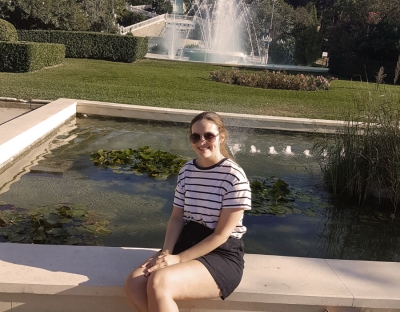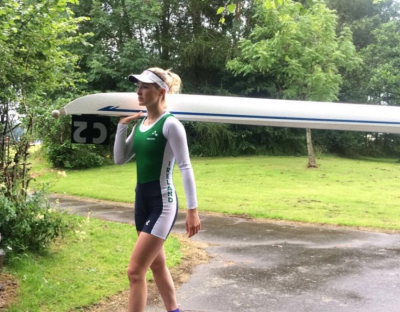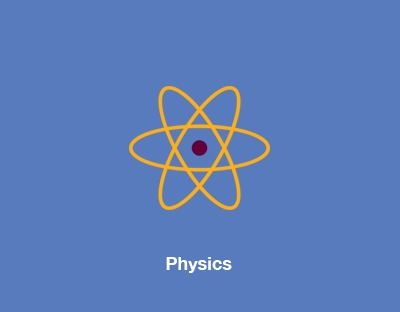Key Info
Bachelor of Science in Applied Physics
Entry route(s):
Are you the type of person who enjoys understanding the details of how current technologies work? Would you like to use this understanding to develop new technologies and applications? Do you want to have flexibility in choosing your career? If so, this programme might suit you.
Why Study Applied Physics in UL?
In short, the top reasons for studying applied physics at UL are:
1. A pragmatic balance between fundamental and applied aspects of physics.
2. Strong emphasis on problem-solving skills making graduates highly desirable as employees in industry, academia and research.
3. Strong engagement in research ensuring that graduates are up to date with the latest developments in applied physics.
4. Outstanding links with local industry for cooperative placement, collaborative research and employment.
5. A friendly, collaborative, and highly collegial environment that stimulates innovative thinking and promotes the highest standard of accomplishment in tackling challenges.
The UL link with industry is one of the strongest in Ireland. With both directly funded and state-sponsored active collaborative research, the Department of Physics at UL is working with companies such as Analog Devices, COOK Medical, Intel, and BorgWarner. In addition to advancing science and developing new products, this engagement also creates employment opportunities for the graduates of the BSc in Applied Physics course. UL’s pioneering Cooperative placement programme also ensures that the graduates are engaged with industry from an early stage of their career and can adapt to the high levels of skill and professionalism required in industry.
Faculty members teaching this course are deeply involved in research and are continually generating scientific breakthroughs and next generation technologies. The Department has an outstanding track record in scientific publications, patents and generation of intellectual property. Examples of scientific advances and technological innovations pioneered in the Department include piezoelectricity in synthetic bone material, infrared nanoscopy, and vanadium redox flow batteries.
Many of the Department’s faculty members are also members of the Bernal Institute, one of the leading research institutes in Ireland, which houses nationally unique microscopy, spectroscopy and process infrastructure. Students gain access to this infrastructure through undergraduate laboratory courses and fourth year projects.
Learn more about our courses and upcoming events
What you will study
The programme is four years in duration.The first two years provide you with a strong foundation in the following areas:
- Mechanics
- Thermodynamics
- Optics
- Electromagnetism
- Modern Physics
- Experimental Physics
- Chemistry
- Electronics
- Computing
- Mathematics
The third and fourth years of study provide core material in the following areas:
- Quantum Mechanics
- Semiconductors
- Nanotechnology
- Computational Physics
- Medical Instrumentation
An important element of the final year is an Applied Physics project which gives you the opportunity to study a problem in depth. During the Spring Semester and Summer of third year a period of Cooperative Education gives you the experience of the application of Physics in an industrial environment.
For further details, go to www.physics.ul.ie
Entry to this program is through LM125: Bachelor of Science in LM125: Bachelor of Science in Physics (Common entry). Before the end of Semester 1, you will have chosen to pursue a degree in Applied Physics or Mathematics and Physics. Outlined below is the Applied Physics route from Semester 2.
| Semester 1 | Semester 2 | ||
| LM125 | Physics Common Semester | MA4022 | Calculus 2 |
| PH4102 | Waves/Light/Modern Physics | ||
| ET4122 | Analogue Electronics 2 | ||
| PH4092 | Semiconductor Devices | ||
| Elective (Choose 1) | |||
| CH4031 + 41 | General Chemistry 2 (Inorganic & Physical) | ||
| MS4122 | Further Linear Algebra |
| Semester 3 | Semester 4 | ||
| MA4403 | Ordinary Differential Equations | MA4404 | Partial Differential Equations |
| PH4041 | Optics | PH4072 | Electromagnetism |
| PH4171 | Mechanics | PH4132 | Modern Physics |
| PH4613 | Forces, Potentials and Fields | PH4042 | Thermal Physics |
| Elective (Choose 1) | Elective (Choose 1) | ||
| CH4003 | Physical Chemistry 3 | CH4004 | Physical Chemistry 3 |
| CH4005 | Physical Chemistry 4 | ET4224 | Sensors and Actuators |
| MS4033 | Methods of Linear Analysis | MS4222 | Intro to Probability and Statistics |
| Semester 5 | Semester 6 | ||
| PH4005 | Introduction to Computational Physics | CO4320 | Cooperative Education 1 - continues through the Summer |
| PH4061 | Quantum Mechanics | ||
| PH4021 | Physics of Solids | ||
| PH4071 | Semiconductors 1 | ||
| Elective (Choose 1) | |||
| CH4005 | Physical Chemistry 4 | ||
| ET4305 | Instrumentation & Control 1 | ||
| PH4013 | Earth Science |
| Semester 7 | Semester 8 | ||
| PH4607 | Solid State Physics 1 | PH4608 | Solid State Physics 2 |
| PH4081 | Nanotechnology 1 | PH4062 | Nanotechnology 2 |
| PH4161 | Atomic/Molecular/Laser Physics | PH4111 | Semiconductors 2 |
| PH4091 | Physics of Modern Measurement | PH4018 | Medical Instrumentation |
| PH4907 | Applied Physics Project 1 | PH4908 | Applied Physics Project 2 |
Entry requirements
| Additional considerations |
Please refer to the entry requirements for |
|---|---|
| Non-EU Entry Requirements |
|
How to apply
| Where are you applying from? | How to Apply |
|---|---|
| Ireland | Irish students must apply to UL via the CAO. More information can be found here. |
| The UK | Students who have completed their A-Levels can apply to UL via the CAO. More information can be found on the Academic Registry website. |
| The EU | EU Students can apply to UL via the CAO. More information can be found on the Academic Registry website. |
| Non-EU country | If you are outside of the EU, you can apply for this degree here. |
Fees and funding
Student course fees are broken into three components - Student contribution, Student Levy and Tuition Fees.
A number of illustrative examples of fees for this course based on the current fee levels have been set out in the tables below.
An explanation of the components, how to determine status and the criteria involved is provided below the examples as is a list of possible scholarships and funding available.
EU Students with Free fees status in receipt of a SUSI grant
| HEA pays | Tuition Fees | €4,262 |
| SUSI pays | Student contribution | €3,000 |
| Student pays | Student Levy | €100 |
| €7,362 |
EU Students with Free fees status not in receipt of a grant
| HEA pays | Tuition Fees | €4,262 |
| Student pays | Student contribution | €3,000 |
| Student pays | Student Levy | €100 |
| €7,362 |
Students with EU fee status not in receipt of a grant
| Student pays | Tuition Fees | €4,262 |
| Student pays | Student contribution | €3,000 |
| Student pays | Student Levy | €100 |
| €7,362 |
Non-EU Students
| Student pays | Tuition Fees | €20,900 |
| Student pays | Student Levy | €100 |
| €21,000 |
Student course fees are comprised of the following components:
Student Contribution
Annual charge set by the government for all full-time third level students. All students are liable unless they have been approved for a grant by Student Universal Support Ireland (SUSI). Please refer to https://www.studentfinance.ie to determine your eligibility for a grant and for instructions on how to apply. The current student contribution is set at €3000.
Student Levy
All students are liable to pay the Student Levy of €100. Please note the Student Levy is not covered by the SUSI Grant.
Tuition Fees
These are based on Residency, Citizenship, Course requirements.
Review the three groups of criteria to determine your fee status as follows
-
Residency
- You must have been living in an EU/EEA member state or Switzerland for at least 3 of the 5 years before starting your course
-
Citizenship
- You must be a citizen of an EU/EEA member state or Switzerland or have official refugee status
-
Course Requirements
(all must be met)
- You must be a first time full-time undergraduate (Exceptions are provided for students who hold a Level 6 or Level 7 qualification and are progressing to a Level 8 course in the same general area of study).
- You must be undertaking a full-time undergraduate course of at least 2 year’s duration
- You cannot be undertaking a repeat year of study at the same level unless evidence of exceptional circumstances eg serious illness is provided (in which case this condition may be waived)
Depending on how you meet these criteria your status will be one of the following -
- Free Fee Status: You satisfy all three categories (1, 2 and 3) and therefore are eligible for the Higher Education Authority’s Free Fees scheme.
- EU Fee Status: You satisfy both the citizenship and residency criteria but fail to satisfy the course requirements and are liable to EU fees.
- Non EU Fee Status: You do not meet either the citizenship or residency criteria and are therefore liable to Non EU fees.
More information about fees can be found on the Finance website
These scholarships are available for this course
| Title | Award | Scholarships Available |
|---|---|---|
| Johnson and Johnson WiSTEM2D Programme | ||
| The George Gooberman Memorial Prize for Excellence in Physics | 1 |
These scholarships are available for all courses
| Title | Award | Scholarships Available |
|---|---|---|
| All Ireland Scholarships - sponsored by J.P. McManus | €6,750 | 125 |
| Cooperative Education Award | 1 medal per faculty | |
| Elaine Fagan Scholarship | €5,000 | 5 |
| Financial Aid Fund | ||
| Higher Education Grants & VEC Grants | ||
| Paddy Dooley Rowing Scholarship | €2,500 | |
| Plassey Campus Centre Scholarship Programme | ||
| Provincial GAA Bursaries Scheme | €750 | |
| Stuart Mangan Scholarship | ||
| The Michael Hillery and Jacinta O’Brien Athletics Scholarship | Various benefits equating to over €7,000 in value | |
| UL Sports Scholarships | Varies depending on level of Scholarship | Multiple |
Your future career
Employability skills from this degree
- Planning, executing, analysing and reporting on experiments and investigations
- Analysing data, evaluating the level of uncertainty in experimental investigations and drawing valid conclusions
- Understanding mathematical modelling and the role of approximation
- Producing clear and accurate scientific reports
- Using laboratory apparatus and techniques soundly
- Using technical language correctly
- Working independently, using initiative to meet deadlines, and interacting constructively with other people
- Construction of logical arguments
- Problem solving by identifying the appropriate principles and using scientific techniques such as special and limiting cases and order-of-magnitude estimates
- Numerical skills
- Attention to detail
- IT skills, including using programming languages and applications
- Communication—listening carefully, reading demanding texts, and presenting complex information clearly
Further Study Options
- Bachelor of Medicine, Bachelor of Surgery (Graduate Entry)
- MA in Business Management
- GradDip in Chemical Engineering
- MSc in Applied Physics
- Structured PhD in Physics
Job titles for graduates with this degree
Graduates progressing directly into employment take up a wide variety of roles. The following provides a sample of initial roles listed on the Graduate Outcomes Survey by graduates approximately one year after graduation:
- Quality Control Analyst
- Consultant
- Laboratory Technician
- Tech Support
- Medical Physicist
- Process Engineer
- Research and Development Engineer
- Software Developer/Engineer
Student Profiles
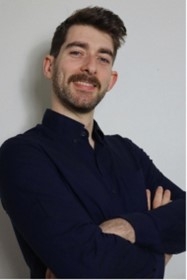
Aaron Coughlan
My name is Aaron Coughlan and I have been a Business Analyst with Irish Continental Group since October 2022. From 2019 to 2021, I worked for Kerry Group on the Global Analytics team as part of their Data and Analytics Graduate Program.
In 2021, I returned to UL to pursue a Higher Diploma in Environmental Science, where I finished top of my class and was awarded Student of the Year. From 2015 – 2019, I studied Applied Physics at the University of Limerick.
During my time at UL, I was fortunate to have many opportunities to grow; academically, emotionally, culturally. This was informed by my time in Clubs and Societies (Drama Society) which challenged me to expand socially and become more confident in myself.
The University of Limerick shepherded me in cultivating knowledge via the many delightful physics lecturers I was lucky to come in contact with. We were educated not just on the universe and the laws of nature that govern it, but on public speaking and presenting complex ideas with clarity and (quite often) an element of humour: “The Devil, albeit a foot shorter” to name one of the many quotes that stood out to me. It is this concept of translating difficult, complicated subject matter into tangible and engaging ideas, that I use the most in my day-to-day at Irish Continental Group. Analytics requires me to deepen my understanding, of not only facts and the data that underline the insights I am trying to communicate, but in order to present those figures in a way that tells a story.
There is a Venn Diagram of those who are educators and those who have the ability to teach. They do not always intersect. Thankfully, this was never the case in the Physics Department of ULSome parting advice to current sixth year; get out there, get stuck into clubs and socs, don’t skip your tutorials and study the past exam papers as early as you can, and don’t be afraid to mess up a little, as long as you learn from your mistakes.
Shane McCarthy
Since graduation, I’ve been working for Accenture as an Analytics Consultant. Accenture is a global management consulting company that works with businesses and governments to help maximize their performance and achieve their corporate vision. I spend my time carrying out analysis, building models and advising our clients who are scattered right across the globe, meaning I get to travel regularly. Working for a consulting company ensures lots of variety - to date I’ve worked on projects ranging from examining the prescribing behaviour of doctors, to saving hundreds of millions of tax-payers’ money through operational efficiencies for an EU revenue agency and even detecting fraud in healthcare.
A degree in Applied Physics will open many doors for you and is the ideal foundation for many careers. This course will give you the quantitative skills, tools and practical training to tackle some of the world’s biggest problems. The UL Experience (outside the classroom) will help you grow as a person and develop those softer skills which are so very important, no matter what career you choose.
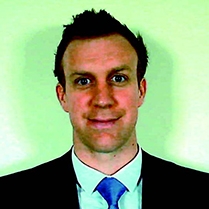
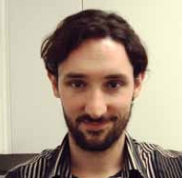
Dr. Jim O'Doherty
A day in the life of a hospital Medical Physicist can be a hectic one. Hospitals are dynamic places requiring clinical interaction, and as a consequence my job ranges from treating cancer patients to performing scans for a variety of conditions, all while researching and developing new and improved treatment methods for the benefit of our patients. I also advise on the radiation protection aspects of our work, and I am regularly involved in the management of many of our patients’ treatments.
My primary degree in Applied Physics and the training and knowledge that I received during my time at UL is invaluable to my work. I use this knowledge and training on a day-to-day basis. There are many subjects that I studied at UL which are integral to what I do now, including Modern Physics, Optics, Computer Programming, Sensors, Biomedical Physics as well as a host of other topics covered in depth on the Applied Physics course. The breadth of Applied Physics offers you many career paths, and the one that I chose is hard work but interesting, exciting and very rewarding.
Jim currently works as a Medical Physicist at the Royal Surrey County Hospital in the UK.

